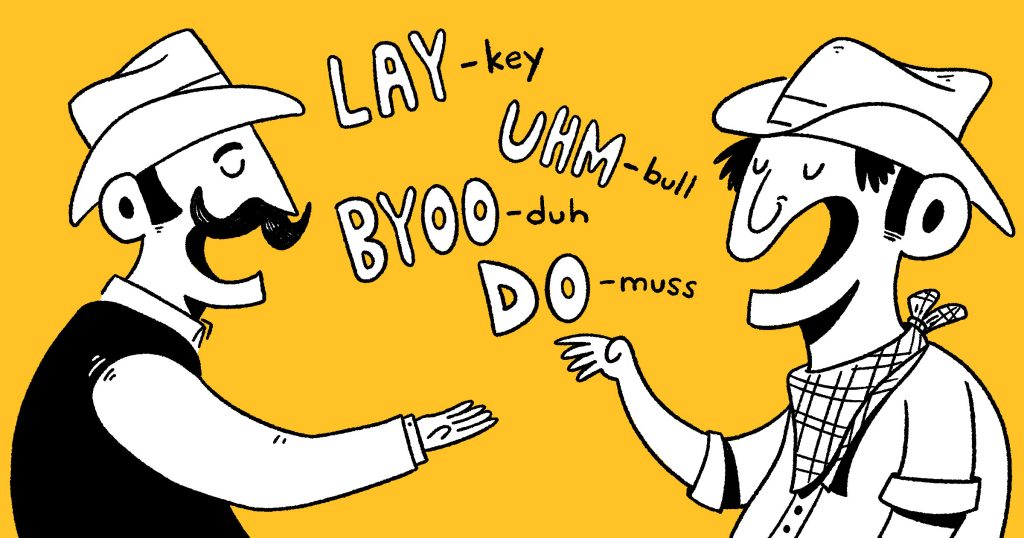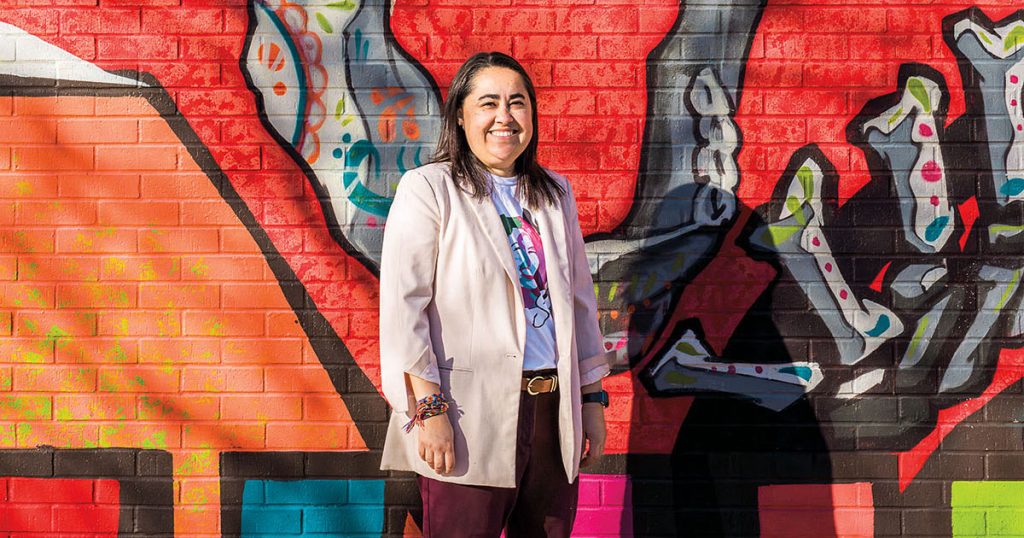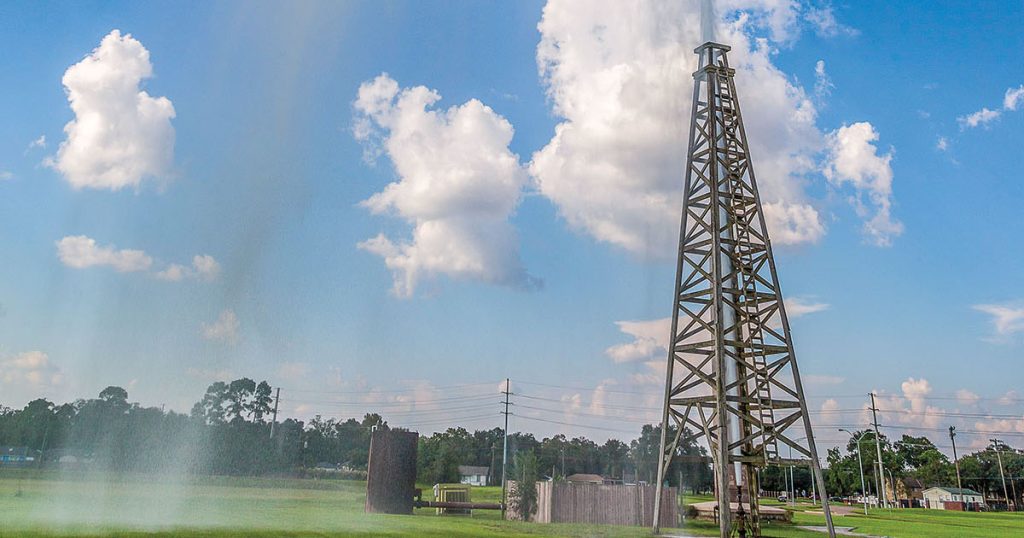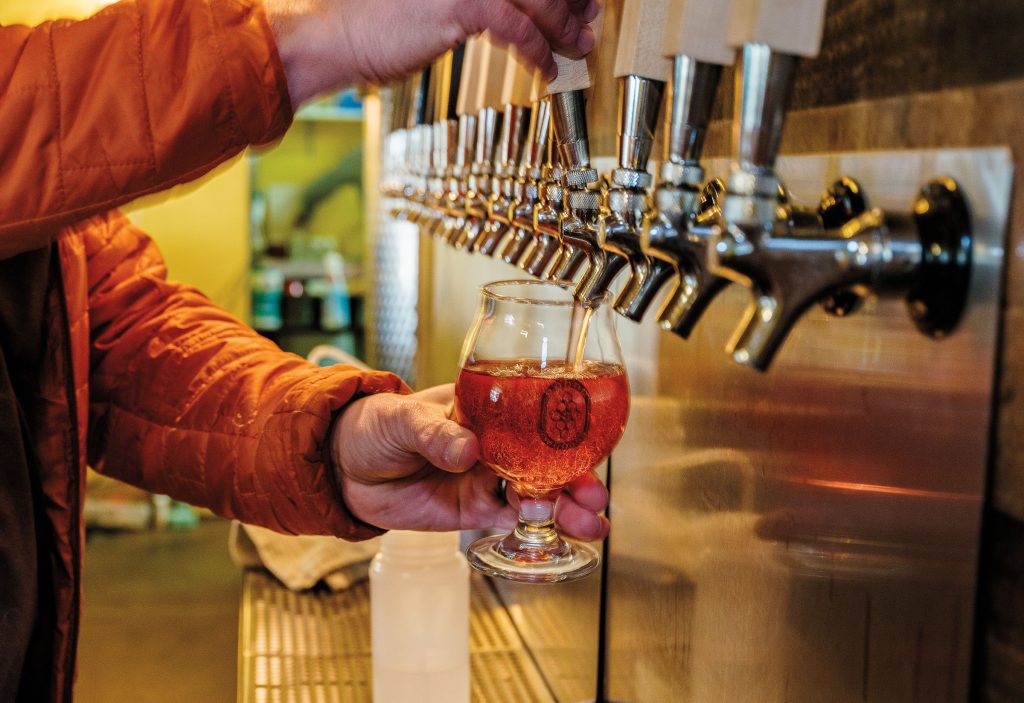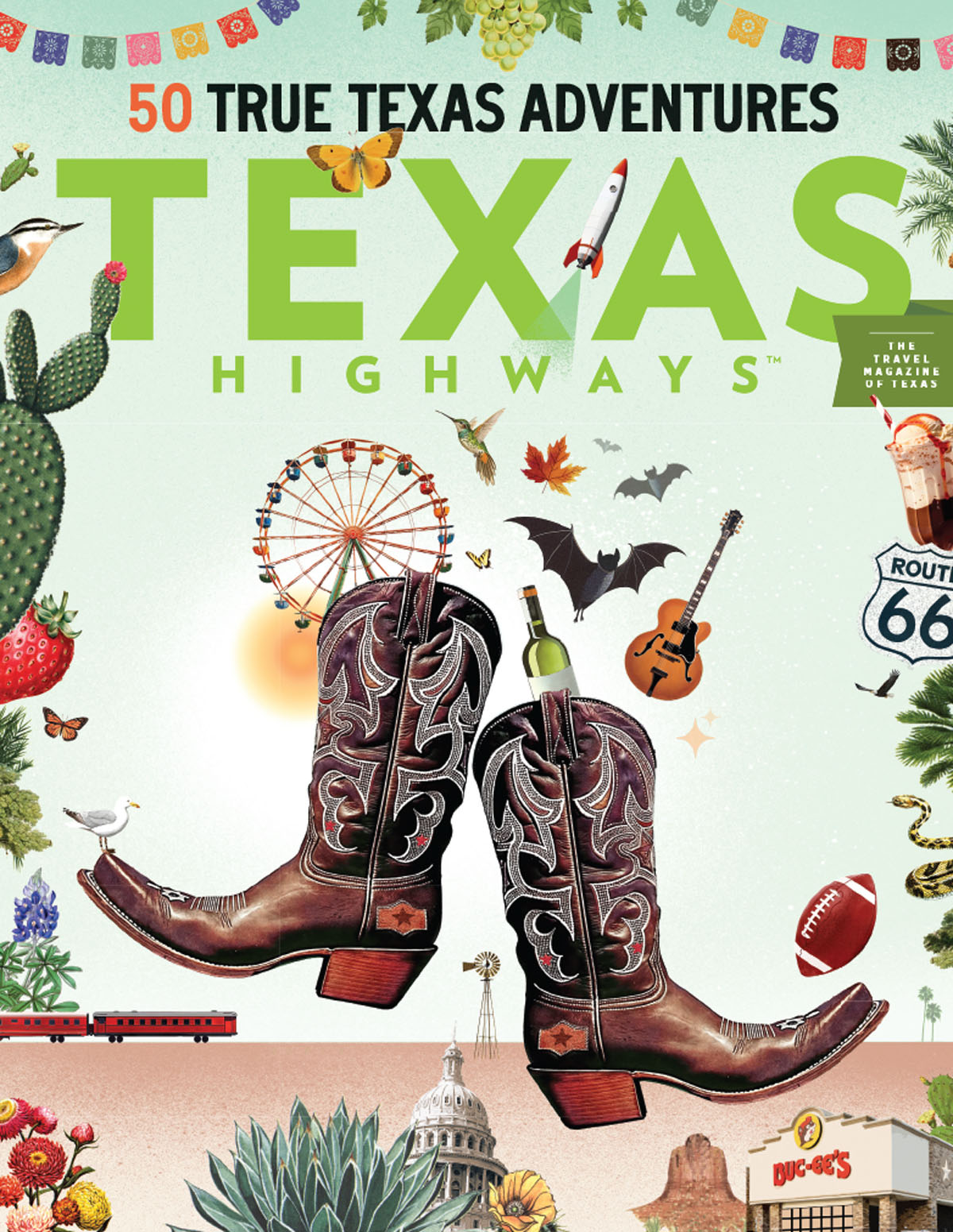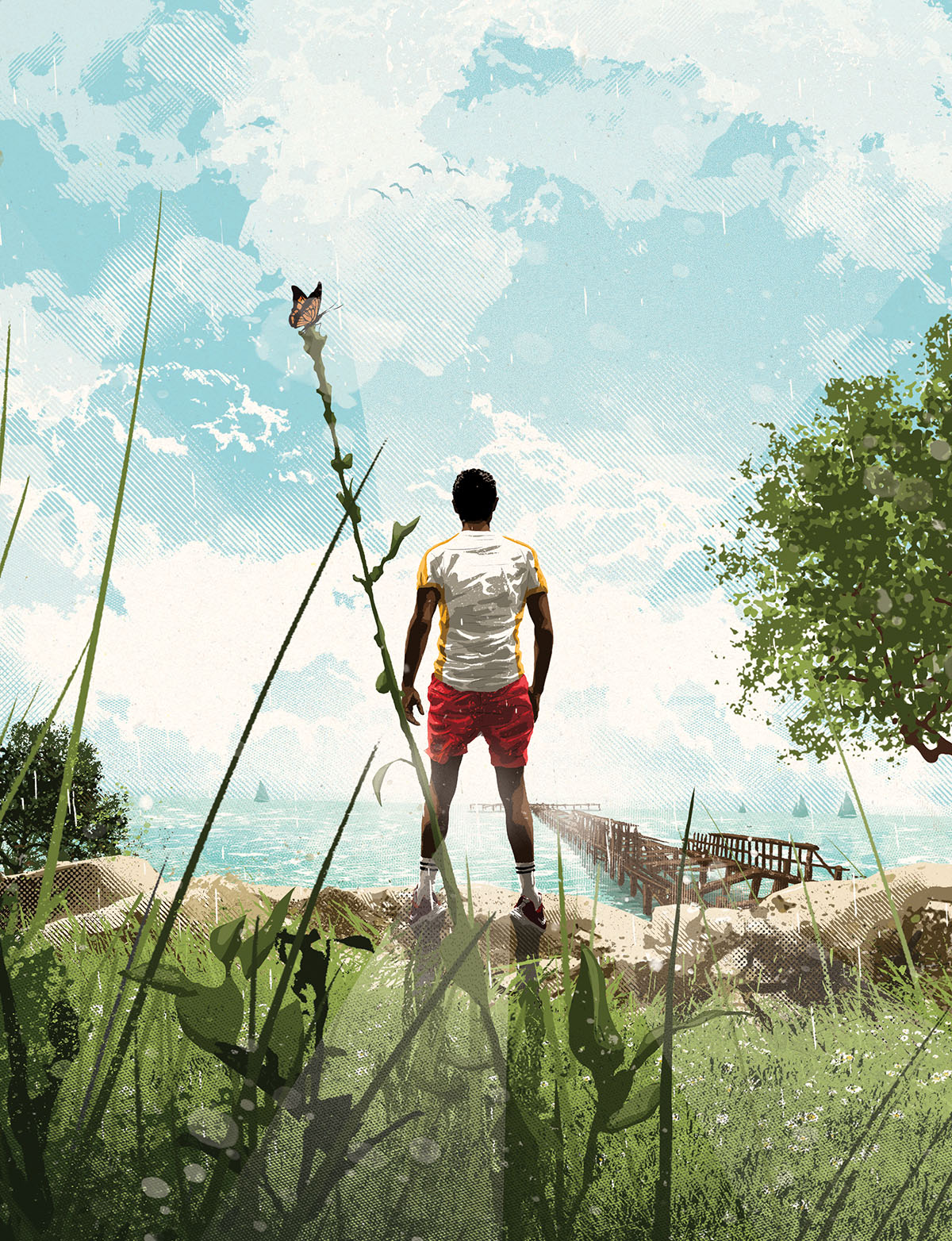
Yemaja’s Siren
A call to the ocean sends a father running toward the future
by Roger Reeves
I try to obey when the ocean calls me. You may or may not believe the natural world calls out to us. Fine. But it does. The Gulf Coast, the ocean, calls out to my blood because some of the blood in it is the same blood that is in me. I must commune with my bloodlines if I am to know about my future. I must take a moment with history, and the way history can be transmitted, sometimes, only through feeling. Through the sound of water lapping against a coastline. Through the waves with their heft and mercurial touch rushing against my hand and legs. Through watching the water move and remembering what I’ve never experienced yet know—the long, too long, history of Black people thrown, drowned, wading, working in this water after being forced to bear the dark abyss of a slave ship.
I come running to the ocean, and my 7-year-old daughter and partner are with me. I drive our truck on US 290 from Austin, past the undulating pastures and lowing cattle, some of them resting their necks upon each other’s dark and heavy bodies beneath scrub oaks and junipers during the unseasonably cool temperatures of mid-March. Does a certain part of the pasture or the barn speak to the cattle’s bloodlines as the ocean speaks to mine? Do the cattle hear the call as I do—as a feeling, as something that says go? Or more so, come.
The trip to Seabrook and Galveston Bay doesn’t become rump-numbingly arduous until we make the US 290 turnoff in Brenham. The highway is nothing but highway, shoulder, and asphalt … highway, shoulder, and asphalt. Texas at its most sublime. I bear it by asking my partner to DJ us through the boredom. Bobby Caldwell’s “What You Won’t Do for Love,” Zapp & Roger’s “Computer Love,” Gino Vannelli’s “I Just Wanna Stop,” and various Luther Vandross songs carry us past Prairie View A&M and the sign that reads “Kickapoo” and on into Cypress and Cy-Fair.
We each slip into our respective silences. My partner thumbs through her phone, scrolling through social media feeds, and when disgusted with that, she turns to watch the road pass by. My daughter falls asleep. With her neck bent and her head bouncing on each turn and bump in the road, she becomes a metronome, although the angle of her neck provides me anything but peace. Instead, I tumble down into more worry. Drought; state politics; the next time fires and police and sirens and the killing of Black people cause protesters to flood the streets. Her bouncing head ticks out each worry until she suddenly wakes and asks how far until we’re there. I tell her not far and point to the strip malls strung out along the shoulders of the highway.
Houston’s suburbs—marked by Chick-fil-A, Starbucks, Home Depot, Popeyes—flit by, releasing me into the next series of strip malls and urgent care hospitals and walk-in clinics. I get restless with each bypassed Church’s Chicken and H-E-B. With my restlessness comes a nervous quiet, and I stop singing along with Luther because I’m already there. I’m imagining myself running toward the bay, toward the ocean on a sand-colored gravel path in Rex L. Meador Park in Seabrook. I’m running toward the small, squat public library and the tall grasses that hide the culvert where the tallest, whitest bird I’ve ever seen in my life stands in the mud, its body coiled as if at any moment it will take flight.
Once beyond the bird, I’m staring at the bridge that crosses the culvert. No, no, I’m not. I’m in a traffic jam on Interstate 45, plunging through pre-rush-hour traffic that feels like regular rush-hour traffic. Concrete arcs swim all about me in the form of overpasses and exit ramps. The sky is as gray and dolorous as the architecture. I let myself fall back into the music. What you won’t do, Bobby sings, do for love. That is why I’m on the road—for love, the love of running and experiencing the world through the rhythm of my body moving in space. I’m on the road because I feel most grounded in myself when standing in silence by a body of saltwater. The ocean.
My daughter has fallen back asleep, her head tipped to the side, her mouth slightly open. She shows early signs of being called to the ocean. Last summer, while visiting Savannah and Tybee Island in Georgia, she slipped between the waves, traipsing farther and farther out into the ocean, eventually snatching her hand from mine and leaping into the oncoming surf. The ocean calls to her as it calls to me, but we answer it differently. I prefer to be in it but never under it. She’s always wanting to go under the water. It’s as if she hears something calling to her and she must go to it, give all of herself to it. Does she hear Yemaja, the mother of the ocean, an orisha of Yoruban culture? Is that why she runs toward the ocean? I know that’s why I do. To be nurtured by her, to listen to what she has to tell me.
Once we’re settled at the hotel in League City, I change into running clothes and rush out to snag the last bit of light that will fall through the live oaks and magnolias on the gravel path leading out of Rex L. Meador Park in Seabrook. Despite it being spring, a gray cold cast its pall over League City and Kemah, carrying with it a reminder of the past winter, its ice-covered crape myrtles, cedars, and live oaks, its tree limbs crashing against the roof and littering our backyard in Austin.
The ocean is calling, and I’m about 5 miles from it. Knowing that sends me hurtling down Marina Bay Drive in my truck toward the running path. I stop at a traffic light, where I experience a little American pageantry.
At the corner of Marina Bay and State Highway 146, Uncle Sam is selling pizza. Not the lean, white-goateed Uncle Sam with the white hat bearing a blue band of white stars on it. Not the Uncle Sam of the red pinstripe pants and sleeves rolled up to show his white American muscles. Muscles that say “I mean business.” Though this Uncle Sam dons a top hat of stars, his sleeves cover his arms, and he does not brandish a beard or a serious gaze. This Uncle Sam dances on the concrete median while holding a large placard that reads “Dan’s Pizza,” and he’s Black.
Decked out in a frock coat, this Uncle Sam presses his palm against the air in front of him, goading each stopped car to honk—and honk repeatedly. Once is not enough. Are we honking for pizza or honking for the show? Abraham Lincoln, Betsy Ross, George Washington, Quakers, and runaway slaves have all been used to sell us anything from tires to mattresses to oatmeal to fireworks to power tools here in America, so it’s not surprising to see a man on the corner selling pizza as Uncle Sam. But it is surprising that he’s Black, and not just because there aren’t many Black folks in the area—League City’s just under 9% African American—but because he might be the first Black Uncle Sam I’ve encountered. Perhaps there have been others, but I have failed to notice them on the medians, on street corners hawking their wares or advertising some service. For me, watching this Uncle Sam is a collision of contradictions. I see two disparate versions of America—the long history of Black people working and laboring in America and the worshipping of American might in the form of a white patriot. And all those symbols, histories, points of contention shimmying on a street corner beneath an underpass in the rain. And selling pizza. And dancing.
And I don’t mean a little two-step. I mean dropping it low, twirling the sign, and when the honking gets more insistent, playing the sign like a guitar. It’s as if the ghost of Jimi Hendrix possessed him and was asking to be reincarnated in the drizzling rain.
When the light turns green, I pull the truck past the American god, turning left onto SH 146. The hulking wooden roller coaster on the Kemah Boardwalk stands to my right and just beyond it the dark water of the bay. Once I get to the top of the highway, the boat and cargo slips greet me in the distance like giants that have turned their backs to the shore.
Because of the dark clouds and drizzle, twilight seems like it’s coming faster than it should. I feel affronted, as if the sky knows how much I don’t want to be out on the path at night. I’ve run the nature preserves there and have been confronted by aggressive deer, which is to say deer will run with you. It’s not as idyllic as one might think. I encountered one deer out on the path who chose violence. It had a bullying streak in him or her—I did not stick around to sus out its sex. It followed me when I crossed to the other side of the trail, followed me when I abandoned the trail completely and walked into the road that ran alongside the trail. Reptiles have also made themselves known to me, though always during the day. I did not want to become acquainted with any of them at night.
I do not enjoy nature’s surprises. As a Boy Scout camping in southern New Jersey, an encounter with a bear climbing a tree near my tent and absconding with a bag of food hung from a branch by a scout leader cured me of any desire to rumble with wild animals. Nevertheless, I’ve always enjoyed the silence of the woods, of nature preserves, of trails. I risk possible encounters with alligators, bears, and rattlesnakes for it.
While running in Sam Houston National Forest many years ago, I absentmindedly hopped over a timber rattler that lay across the trail. Only after I was a few feet away and the friend I was running with had stopped did I realize what I had hopped over wasn’t a boa constrictor, as I had deduced while jumping, but a rattlesnake. My friend Tom turned bright red and hopped up and down while pointing at the sand-brown-scaled and black-striped snake that separated us. For years afterward, I refused to run on any trails that were not in the middle of a city surrounded by the snarl and exhaust of traffic. But after living on and running down broad boulevards lined with greystones and the paltriest of trees in Chicago for six years, I longed for trails, for the limbs of large trees with broad canopies turning the middle of the day to darkness.
On the gravel path in Rex L. Meador Park, the day is slipping into darkness. But the sound of my forefoot striking the gravel sets me in rhythm with myself. When I get to the ditch and culvert, I glance over the side of it. Nothing there. Not an alligator or heron walking about in the dark, shallow water. Not a snake wriggling through the tall grass. And even if there were, I’d run on, run deeper into the woods on the other side of the bridge.
I run toward the white-capped waves of Galveston Bay. I run toward the gunmetal-gray oil tankers and fishing boats that sit along the horizon. I run toward the silence that fixes me, roots me. I run over the wooden bridges and decks that spread out over the brackish water and marsh grass as I hear rain hitting the leaves above my head, hear it patter against the grasses and brown leaves along the side of path.
I feel so far from the graveyard. Even though I’m running toward a nesting ground for alligators, I run on, my breath louder and louder in my ears. On the other side of the nesting ground, across a small road, about a half-mile up the trail, the bay and the stillness await. This is what I’ve been running toward: life. Life in slowing down, in standing on a shore watching the water move, not thinking about anything other than that. Water, movement. Life in the worry that sometimes arises in my mind while pulling my hand through the water. I touch something, know something that I cannot when mired in the daily wanderings and mechanizations of my city life in Austin. I know certain knowledges live in water, live where the land becomes soft, submerged, secondary to another sense of motion, or time. Where the land and the water meet, become a door. Where some things return—and some do not.
I cross the road and descend into Pine Gully Park. The white flowers of the magnolias clutter the path. They already have that brown line that runs along their petals. The line reminds me of a wrinkle in the faces of the old Black barbers I used to work for as a child in Mount Holly, New Jersey. The barbers would fall asleep on summer afternoons when foot traffic into the shop slowed to nothing. They’d fold themselves into their barber chairs, crossing one leg over another, and doze off, their heads in their hands. Their faces were finally still after rabid discussions about the Gulf War, Vietnam, fishing bait, and the use of human hair to keep rabbits and deer out of a garden. The barbers would only stir when the bell above the door tinkled. And sometimes, not even then. I’d have to go over and touch them on the shoulder, let them know they had a client. Slowly, they’d unfurl themselves. All the clamor and loud talk waking behind their faces.
On the trail, there’s nothing but silence. I become more aware of my weight each time the path changes from gravel to wooden bridge. I slow a bit, not wanting to crash through or slip on the rain-drenched boards. Gulls and pelicans drift and bob overhead as if recording my path through the swamp. Smaller birds dart in between the grasses. Though I know Pine Gully Park is in Seabrook, when standing on one of the wooden platforms that look out into the bay, ensconced in high grass and surrounded by water, it doesn’t feel as if I’m in Texas. The Amazon, perhaps. Or maybe not the Amazon, but a Texas before miles of oil and chemical pipeline snaked beneath the soil. A Texas before the boat and cargo slips that hulk up the sky. A Texas that was not yet Texas but a series of waterways, swamps, estuaries, nests, grasses, where time was not yet measured in how many cars will make it through a stoplight. A time before Dan’s Pizza.
Right before I emerge out into the bay, towering grasses skirt the sides of the path, narrowing it as the wind picks up. The claustrophobic feeling relents once I stumble onto the small, unexpected parking lot that affronts the water. I break from my running routine to stand on the shore of the bay and listen and feel. I break for the silence, for what it wants to tell me.
You must understand how abnormal this break is for me. Normally, I don’t stop when out for a run. I love the flow of it, the way my body takes over and I become more animal. Maybe my best animal. But the water there, in Galveston Bay, always asks me to stop. And so, I do. I try to be as present as possible. I leave it all back in the truck with my cellphone, which is vibrating with news updates that might drive my family and me from the state, this state I’ve come to love and call home. For a moment, I try to be with the bee in the grass, with the waves, with the pelicans diving into the surf before coming to a calm float atop it.
In watching the water, I can’t help but think of the Africans brought over on ships to Galveston. How might those boats have looked to the Karankawa, the Native Americans who lived upon those shores and watched, as I do now, the ocean? Had they thought of those clippers making their way along the shoreline as destruction? What did they think of the women, children, and men shuttled down gangplanks and brought onto the shore in chains?
While standing there at the door of the ocean, I think of Yemaja. What is she trying to tell me about my life? How might she be talking to me about being a father? Is it there in the waves, in the motion of water against the rocks? Maybe the water lapping over something hard, wearing it down to sand, is a way of thinking about nurturing a child. Or maybe it’s the way the rock relinquishes its hardness bit by microscopic bit, allowing the ocean to make something else of it. Maybe that’s what it means to be a father. Becoming sand, dispersed. The future, it seems, is in the ocean. Maybe that’s why I’m driven to it—why I have made this drive out to Seabrook and this preserve. I’m trying to learn something about the future in the stillness, in the water, in the grasses and trees that have seen all manner of upheaval.
I stay as long as I can, but my damp clothes, the wind, and the rain picking up make me long for the truck, which is 3 miles behind me. I must go back through the preserve with its alligator nesting grounds. My partner and daughter are waiting for me at the hotel. I will return to the ocean when called. The ocean, its saltwater and history, is always my future, calling to me.
